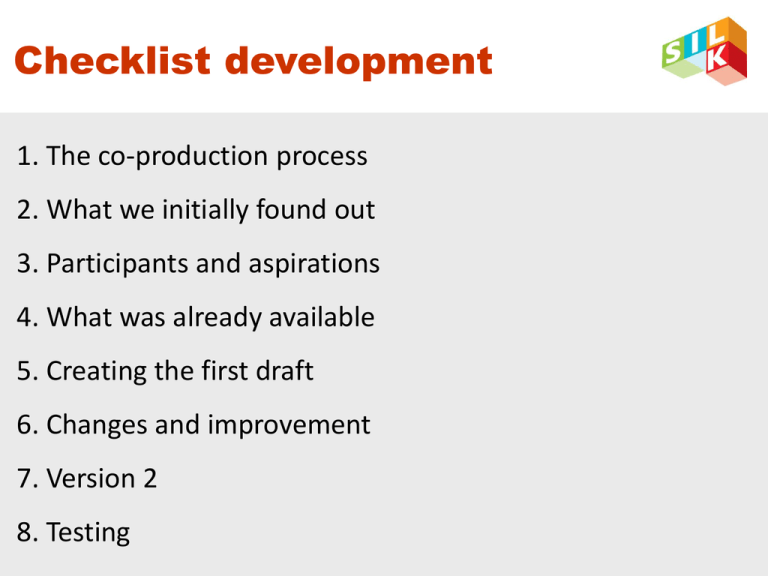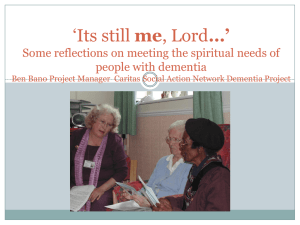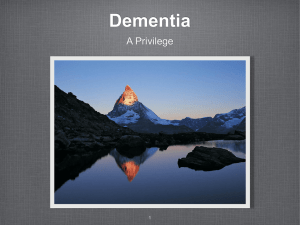Checklist development
advertisement

Checklist development 1. The co-production process 2. What we initially found out 3. Participants and aspirations 4. What was already available 5. Creating the first draft 6. Changes and improvement 7. Version 2 8. Testing 1. The coproduction approach This Checklist has been co-developed by people living with dementia and their carers, supporting organisations and medical professionals, using the SILK co-production approach 2. What we initially found out “I went to the doctor with a memory problem, it took two or three more goes to make him understand. That’s only because that’s who I am, but some people can’t stand up for themselves and can’t be forceful to make the doctor understand”, SILK Insight Report (2012) carried out with people living with dementia, their carers and frontline workers. Diagnosis was sometimes difficult. People wanted something that could support them when talking to their doctor about the symptoms they were experiencing. 3. Participants & aspirations Participants included: People living with dementia, a carer’s group, a day centre group for people living with dementia, and professionals working in the field, including GPs and charities Participants agreed a new document needed to: Provide people with an understanding of the symptoms Prepare people for meeting with their GP Signpost people to additional support if they needed it 4. What was already available Participants reviewed examples of symptom checklists from the Azheimer’s Society (UK) and the Alzheimer’s Association (USA): Alzheimer’s disease: 10 warning signs Recognising the signs and symptoms of dementia Worried about your memory Know the 10 signs Preparing for your doctor’s visit 5. Creating the first draft A prototype was designed based on the needs and aspirations identified in the review discussions This first prototype was shared with all contributors so far and the Kent and Medway Dementia Collaborative Board to share with their organisations The feedback was used to refine the design of the Checklist 6. Changes and improvement Calling the document Concerned about your memory? Re-phrasing some of the text so that it applied to the person concerned and also family members and friends Changing or removing some of the questions Creating space for people to add any other symptoms, changes or questions Including a question about current medication Adding the Kent 24 hour Dementia help line number 7. Version 2 8. Testing A pilot area was identified, Tunbridge Wells, where there was a low 37% diagnosis rate. There was an opportunity to link with the Prime Minister‘s Challenge project for primary care diagnosis. People referred to secondary care prior to assessment were sought to test the checklist We worked with Community Mental Health Teams to target people who have not yet sought help by accessing other areas GP Surgeries, Pharmacies etc 9. Evaluation The checklist is about to undergo a formal evaluation by the Kent, Sussex and Surrey Demetria Care Innovation Hub If you would like to take part in the evaluation or for more information please contact silk.team@kent.gov.uk











